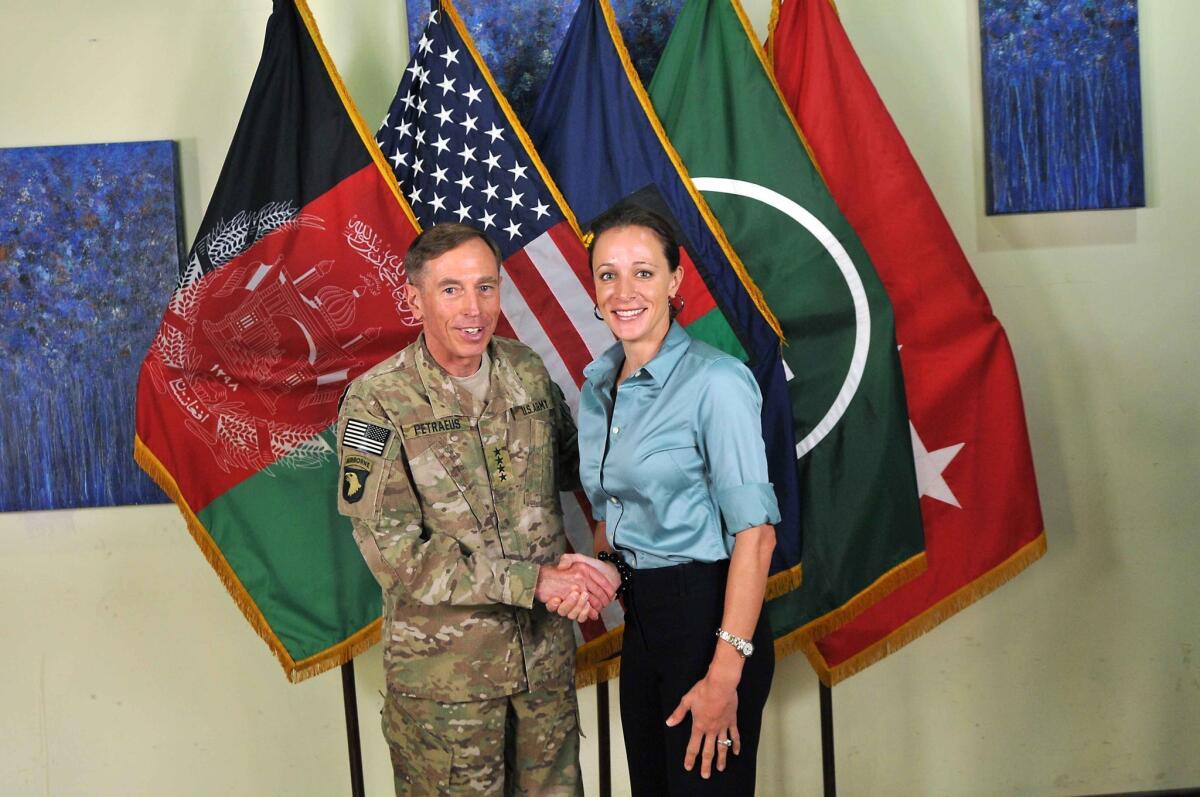The Petraeus affair

- Share via
Sen. Dianne Feinstein (D-Calif.), chairwoman of the Senate Intelligence Committee, seemed to be speaking for many confused supporters of former CIA Director David H. Petraeus on Friday when she said he shouldn’t have been forced out of his job by a personal indiscretion and expressed regret that President Obama had accepted his resignation. Two days later, after speaking personally with Petraeus, she had changed her mind.
“When you realize additional complications … I think he did the right thing,” she said Sunday. Really? Can you explain those reasons to us, senator? Because we’re still not clear on what’s going on here.
Extramarital affairs conducted by public officials attract titillating media coverage and public attention, though in our view they’re typically nobody’s business but those of the principals and their families. Obviously, there are exceptions; if a leader uses his position to sexually harass a subordinate, for instance, it constitutes a serious ethical and even legal breach. Politicians who preach moral absolutism and stand in judgment of others who have affairs, even as they’re betraying their own spouses, deserve to be called out for hypocrisy. And there are some leadership roles in which adultery could impact job performance and even put the country in danger. It’s possible Petraeus falls into that category, if he leaked confidential information to his mistress or made himself a blackmail target.
SLIDESHOW: Political sex scandals
So far, however, there’s no evidence of any such thing. The FBI investigators who discovered that Petraeus was having an affair with his biographer, Paula Broadwell, seized her home computer and found several classified documents, but reportedly turned up nothing to indicate they had come from Petraeus, and the FBI ruled out filing charges against him. CIA spies are, indeed, urged to avoid extramarital affairs because it can make them susceptible to blackmail, yet former CIA officials say such affairs are common and are regarded as a potential security threat only if the officer is involved with a foreigner or someone else who poses a special risk. Broadwell is an officer with the U.S. Army Reserve.
There are still many unanswered questions about all of this, including why the FBI waited until shortly before the polls closed on election day to inform Petraeus’ boss, National Intelligence Director James R. Clapper, about the investigation, not to mention congressional leaders. The Justice Department and the FBI may need clearer direction about their responsibilities when investigating high-level officials, even if the probes touch solely on matters of reputation rather than criminal breaches. Moreover, information may yet surface showing that Petraeus’ indiscretions were more serious than has yet come out. Until then, though, we’re still trying to understand why one of the most successful American generals and brilliant military minds of his generation had to lose his job for cheating on his wife.
More to Read
Get the L.A. Times Politics newsletter
Deeply reported insights into legislation, politics and policy from Sacramento, Washington and beyond. In your inbox three times per week.
You may occasionally receive promotional content from the Los Angeles Times.










